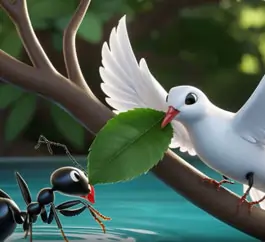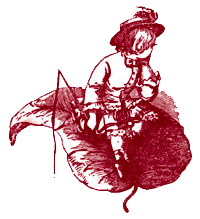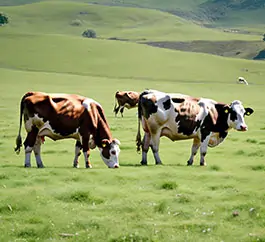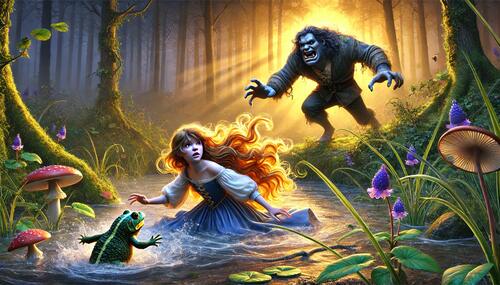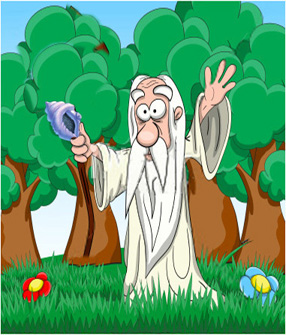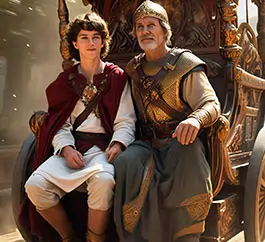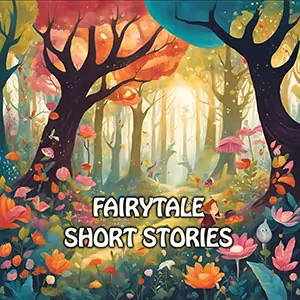Short Stories » Wild Animals from the Indian Stand-Point
Wild Animals from the Indian Stand-Point - Page 5 of 7
' Their understanding of one another's actions is keener and quicker than we can give news by words, for some are always doubters, and then we of the two-legged tribe are given to lie at times, either with or without intention. This proves that the animal does not lack the power to give news or intelligence to his family and neighbors. If this is so, then they do not lack means to convey their wishes to their young, which is to teach them."
This declaration was received in silence, and, presently, Hohay added: 'How is it, Sheyaka? Is it commonly accepted by our hunters that some of the four-footed people play tag and hide-and-seek with their little ones?"
" Ho, it is well known," responded the host. " I have seen a black-tail doe run away from her fawn and hide. When the little one ran to find her, calling as he seeks, she would rush upon him playfully at last from some unexpected nook or clump of bushes."
"Once I saw a beaver," continued Hohay, "send her whole family to the opposite side of the pond when she was about to fell a large tree. One of the young ones was disobedient and insisted upon following the mother to her work, and he was roundly rebuked. The little fellow was chased back to the pond, and when he dove down the mother dove after him. They both came out near the shore on the opposite side. There she emphatically slapped the water with her tail and dove back again. I understood her wishes well, although I am not a beaver."
' The grizzly is an excellent mother of her kind," suggested Kangee. "I once followed a mother bear with two small cubs. As soon as she discovered me, she hastened toward a creek heavily fringed with buffalo-berry bushes. When she disappeared over the bank, I hurriedly followed to see what she would do. She had sent one of the cubs into the thick bushes, and a little farther on she tried to dispose of the other in another good place, but the cub would not obey. It came out each time and followed her. Suddenly she grabbed and threw it violently into a thicket and then ran around the creek and came out almost opposite. There she watched me from under cover."
"Bears, wolves, and foxes," commented old Hohay, "often cuff or slap their young to teach them obedience. Katola might say that the obedience is inborn or instinctive, but it is not. Young animals can be very rude and disobedient to their parents when they are small, but their mothers' training is strict and is continued until they leave them. We Red people have followed their example. We teach our children to respect and obey their elders," concluded the old story-teller.
" The fox is a most orderly eater," Kangee remarked. "Why, she will not allow her children to eat greedily! We know that when she finds a nest full of ducks' eggs for she is a great egg-stealer she will drive away the excited young foxes, and roll out egg after egg to each one in turn. Each must wait until she serves him again."
' When I was a young man," said Sheyaka, ' I have often called the fox for fun, when I had no intention of harming him. He is a keen and cunning hunter, but easy to fool when you know his weakness. I would imitate the squeaking of the larger field-mouse. He never hesitates, but runs directly to the place where the noise comes from.
"Once I saw him afar off, travelling over a burnt prairie. I lay down in unburnt tall grass, and gave the mouse-call. He came on as if he were very hungry, running at top speed, and 1 kept squeaking so as to make it seen as if there were many mice.
" When he reached the tall grass he sprang high as lie came, and when he jumped clear over me I suddenly gave a war-whoop and waved my blanket. You should have seen how scared he was! He tried to turn back in mid-air and fell almost upon me so that I got hold of his tail. I laughed so hard that I could scarcely keep my hold, but the end of the matter was that he left part of his fine brush with me. I wore it for a long time as a hunting trophy."
« BackNext »
